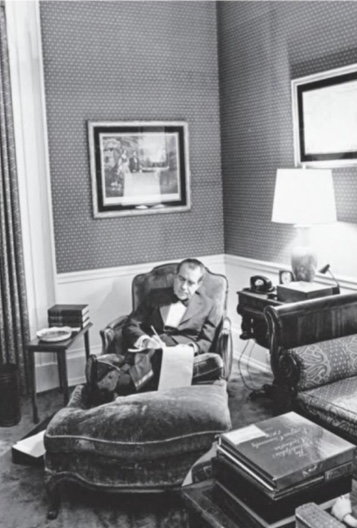King Richard: Nixon and Watergate, An American Tragedy

This is a blogpost preview to Wednesday’s podcast interview with Michael Dobbs, author of King Richard.
Michael Dobbs was a journalist with the Washington Post, the newspaper whose reporters Bob Woodward and Carl Bernstein famously exposed the intricacies of the Watergate scandal. Richard Nixon, the 37th President of the United States was forced to resign as a result.
But ironically Nixon himself never approved the break in at the Watergate Apartment complex. His team of White House aides and campaign officials outlined in the following diagram were the ones who set the scandal in motion and some of them served jail sentences as they turned on each other to save their skins.
While Dobbs is not a presidential historian per se, he is a presidential crisis historian as this book and his books on FDR, Truman and JFK will attest. A concurrent second blogpost on the author will discuss his biography.
He paints Nixon to be a brilliant geopolitical strategist and historian but an awkward and lonely man. He rarely worked in the Oval Office, but instead sought out a private office in the adjacent Executive Office Building where he was photographed walking up the steps to escape the White House.
Ever uncomfortable with the grand Oval Office, he also found another cubby hole in the White House’s smallest room where he was pictured writing his second Inaugural address in January 1973.

All of his defiance and scheming could not stave off the the untimely end of his term in office. And just as his ascent to the highest office had been unlikely but he accomplished it through hard work and cunning, he was also his own worst enemy.
Even as he boarded the presidential Marine One helicopter to fly off into lonely exile in San Clemente, California, he defiantly flashed the V for Victory sign.






















